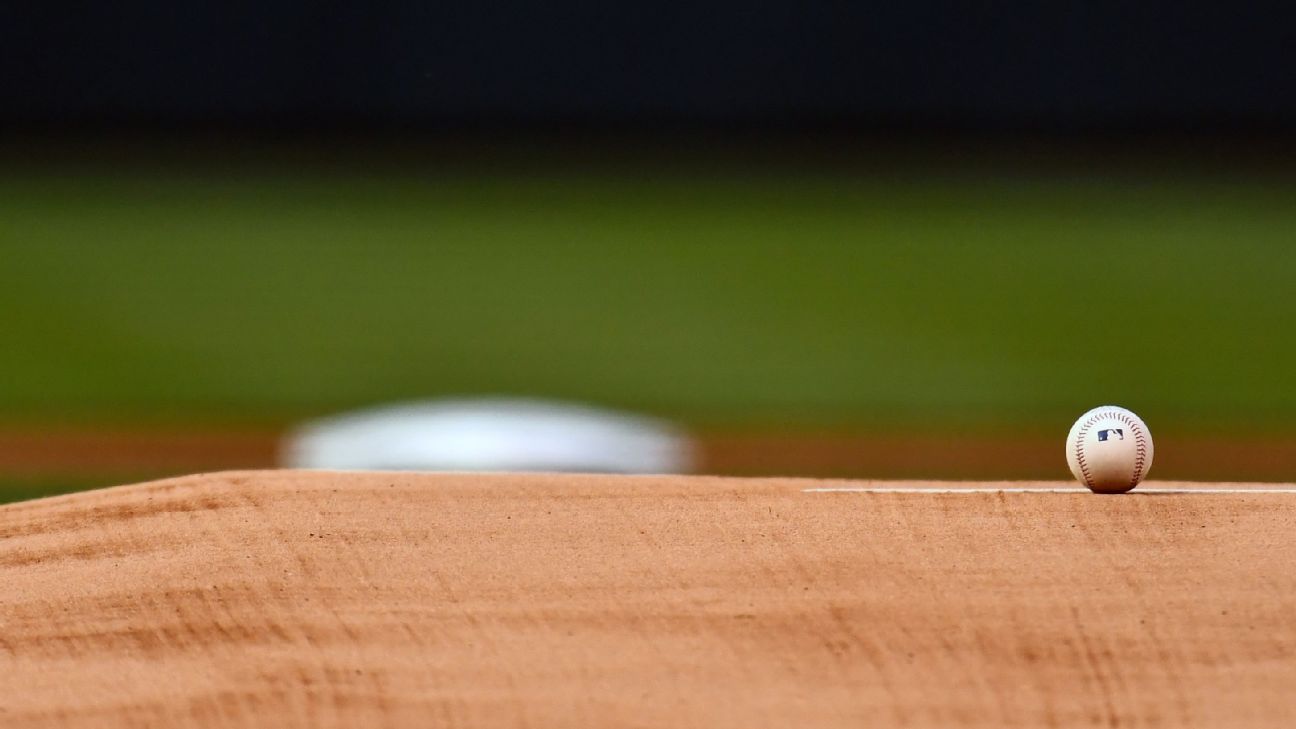
More than 50% of minor league players have voted to support unionizing, paving the way for players to organize and join the Major League Baseball Players Association, the union announced Tuesday.
In a letter sent to MLB on Tuesday morning, the union said it asked for voluntary recognition from the league, in which MLB would acknowledge that a majority of minor league players are seeking to unionize and formally accept the MLBPA as their bargaining representative.
"Minor league players have made it unmistakably clear they want the MLBPA to represent them and are ready to begin collective bargaining in order to positively affect the upcoming season," MLBPA executive directory Tony Clark said in a statement.
If the league chooses not to recognize by a date specified in the letter, the MLBPA could hold a vote through the National Labor Relations Board in which more than 50% of eligible players would need to vote in favor of unionization.
Ten days after the MLBPA sent out union authorization cards to minor league players, the percentage returned far exceeded the threshold of 30% necessary for the next step in potential unionization. Minor league players have said higher wages and better working conditions are among their top priorities.
"I definitely feel scared, but this feels like the right thing to do. We're all jacked up," said Joe Hudson, a catcher at Triple-A Durham in the Tampa Bay Rays organization. "There's some bewildered teammates who can't believe this is actually happening. Everyone is just raving with positivity, moving forward. I haven't come across one guy who's against this right now. It's really a snowball effect here."
After decades of representing only players on major league teams' 40-man rosters, the MLBPA is seeking to grow its rank-and-file more than fourfold. The union would represent more than 5,000 players on domestic rosters and has suggested it would later consider doing the same for players on Dominican Summer League teams and at teams' Dominican complexes.
The MLBPA has bolstered its nascent minor league operation by hiring employees from Advocates for Minor Leaguers, a group that helped organize the players who distributed the authorization cards and has fought for improvements, including higher pay and housing in home cities, to which MLB acceded in recent years.
"People have been more open to talking about what's going on," said Connor Lunn, a Double-A pitcher with the St. Louis Cardinals organization. "Before, it was just the Advocates trying to spread the word and people were timid and scared to talk about the issues of what's going on, and now it seems like the players are talking about it more in the clubhouses or on the field. They're not as scared to confront the issue."
The issue of minor league pay has rocketed to the forefront of the sport in recent years. The vast majority of players currently receive between $400 and $700 a week and are paid only in-season. MLB in July agreed to pay $185 million to settle a federal class-action lawsuit filed by minor league players who sought pay after alleging minimum wage and overtime violations by teams. The Senate Judiciary Committee has said it intends to hold hearings on the treatment of minor league players and how the league's antitrust exemption affects them.
"We're seeing how things have worked over the past decades and how things are going to work in the future," said New York Mets shortstop Francisco Lindor, who is one of the eight members of the MLBPA's executive board. "We are headed in the right direction. When I was in the minor leagues, it was so much about forgetting about what you're getting paid, forget about the travel, just make it to the big leagues and play better. But also it's not the way to be.
"Right now, I feel like there's way more awareness in understanding that it's about having better sleep, better travel, better food, better paychecks help you perform at a higher level. I'm happy that we are working to unionize them, help them out. They are the future and that is the beginning of every baseball player and they are the future of every major league team. We are hoping to protect them."
ESPN's Joon Lee contributed to this report















 Phone: (800) 737. 6040
Phone: (800) 737. 6040 Fax: (800) 825 5558
Fax: (800) 825 5558 Website:
Website:  Email:
Email: 






